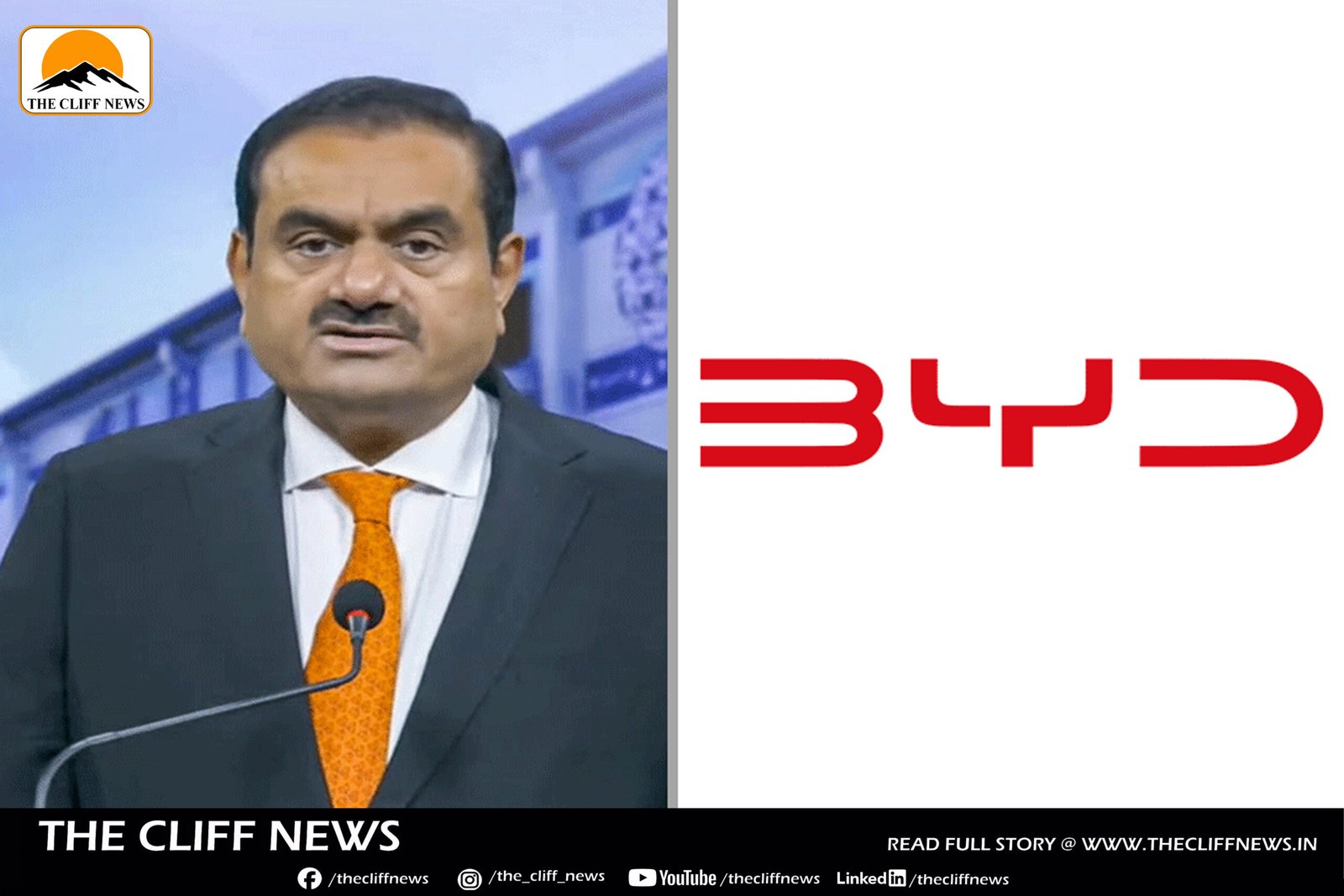The Adani Group is reportedly in early-stage discussions with Chinese electric vehicle (EV) giant BYD Co. for a potential partnership that would enable battery manufacturing in India. The move aligns with billionaire Gautam Adani’s strategy to expand into clean energy, with a particular focus on lithium-ion cell production for both electric vehicles and stationary energy storage systems—essential components for Adani’s rapidly growing renewable energy portfolio.
According to a Bloomberg report, Adani is personally leading the negotiations, with meetings between Adani executives and BYD representatives taking place as recently as last week. However, due to strained diplomatic relations between India and China, any prospective agreement is likely to be routed through BYD’s subsidiaries based in third countries rather than directly from its Shenzhen headquarters.
The motivation behind the tie-up is rooted in BYD’s global leadership in battery innovation and cost-effective technology, which Adani sees as critical for achieving his clean energy goals. Despite the discussions being at a preliminary stage and carrying no guarantee of success, BYD is seen as a natural fit, given its dominance in both EV production and rechargeable battery technology.
However, such a collaboration would face significant geopolitical challenges. India and China continue to experience tension over border disputes and global trade routes. Since April, China has restricted exports of certain critical technologies and components, such as rare earth magnets, to India and Southeast Asia. Meanwhile, India has withheld visas for BYD executives, forcing meetings to occur in neutral territories.
In addition to BYD, the Adani Group is also exploring partnerships with other Chinese renewable energy companies, including Beijing Welion New Energy Technology Co. Sources indicate that Adani is acutely aware of the political sensitivities involved and is preparing to navigate regulatory hurdles carefully.
While European and South Korean suppliers are also being considered, they reportedly cannot match the price competitiveness of Chinese firms. During a low-profile visit to China in June, Adani held meetings with firms like Broad Group and Jinko Solar Co., as confirmed through social media activity and official statements. However, some Chinese companies declined to meet the Adani delegation, underscoring the delicate diplomatic climate surrounding any India-China collaboration.
As of now, neither BYD nor Beijing Welion has publicly responded to the reports of ongoing discussions.



